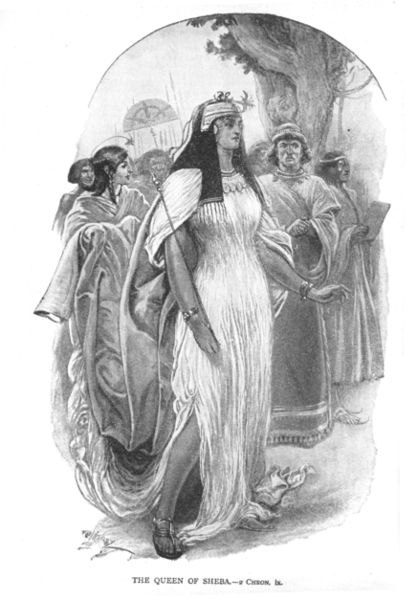Sheba is an ancient kingdom mentioned in the Hebrew Bible and the Quran. It particularly features in the tradition of Orthodox Tewahedo in today's Yemen and is also asserted as the home of the Queen of Sheba, who is left unnamed in Jewish texts, but is known as Makeda in Ethiopian texts and as Bilqīs in Arabic texts. According to the Jewish historian Josephus, Sheba was the home of Princess Tharbis, who is said to have been the wife of Moses before he married Zipporah.
Slab with an inscription about the political activities of the kings of Sheba. Ancient South Arabian script appears. From Yemen, 2nd century CE. Ancient Orient Museum, Istanbul
Bilqis reclining in a garden, Persian miniature (ca. 1595), tinted drawing on paper
Illustration in a Hafez frontispiece: Bilqis enthroned, under a flying simurgh (c. 1539)
The Queen of Sheba is a figure first mentioned in the Hebrew Bible. In the original story, she brings a caravan of valuable gifts for the Israelite King Solomon. This account has undergone extensive Jewish, Islamic, Yemenite and Ethiopian elaborations, and it has become the subject of one of the most widespread and fertile cycles of legends in Asia and Africa.
An illustration of the Queen of Sheba
Queen of Sheba and Solomon, around 1280, window now in Cologne Cathedral, Germany
King Solomon and the Queen of Sheba, from The History of the True Cross by Piero della Francesca
The Embarkation of the Queen of Sheba, Claude Lorrain (1600‒1682), oil on canvas







